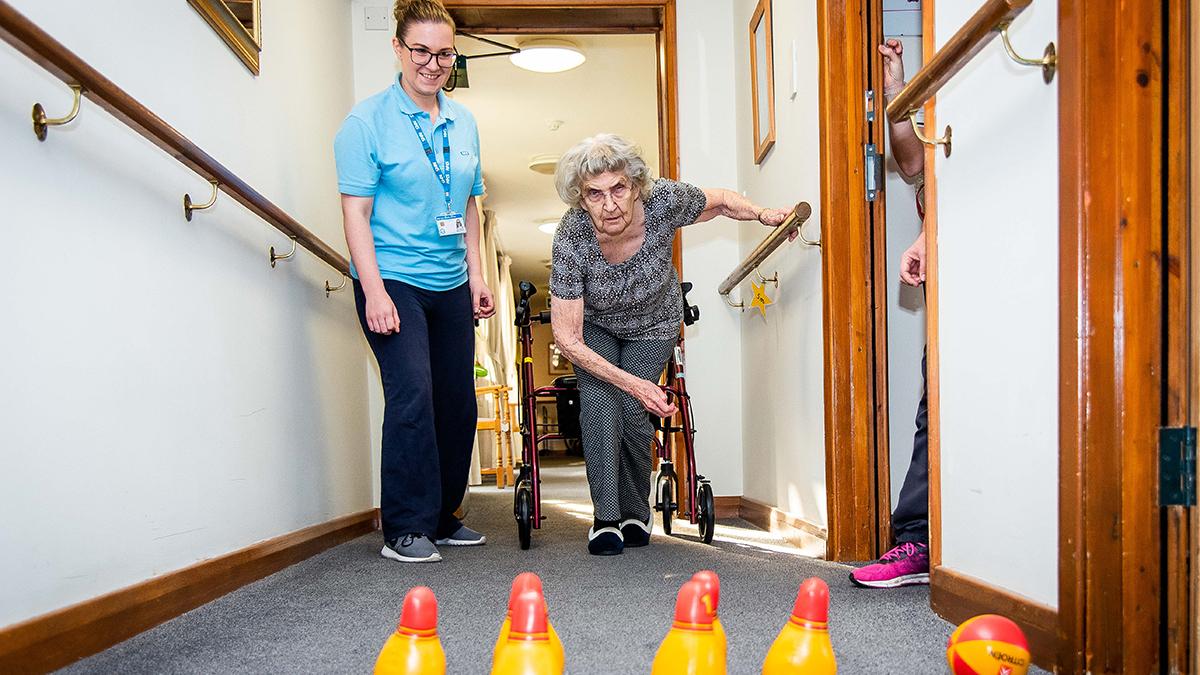Competency booklets have been created specifically to enable therapy support workers in the integrated community teams, community hospitals and reablement units in Gloucestershire Health and Care NHS Trust to work safely and effectively at the height of scope of their roles.

‘This is a great example of the importance of professional governance,’ GHC head of adult physiotherapy Sarah Morton said. In recognition of the need to appropriately support the implementation of newly developed assistant practitioner apprentices and the subsequent new ways of optimising the support workforce’s contribution to care, a wider project was developed, explained Ms Morton.
‘This project included the whole team engaged in reviewing therapy support workers’ roles: their training, education and competency development, and their supervision and support. The end goal was to provide clarity and consistency across the service in roles, responsibilities, clinical competencies and governance arrangements for all levels of therapy support worker practice.
‘While the frameworks are vital they sit within a wider programme of work including referral triage guidance, caseload reviews and supervision processes. There has also been a programme of training for both the qualified and support work force on their involvement in embedding these frameworks. I am delighted this work has been so positively adopted by colleagues within our organisation and we are now looking at other service areas to develop similar frameworks.’
CSP professional adviser Claire Fordham described the work as ‘outstanding’.
‘What has emerged is a career development pathway for support workers in the service,’ she said.
‘As part of this initiative the team are successfully drawing down on the apprenticeship levy to enable access to a formal education and qualification route for their therapy support staff.
‘This type of approach to support worker development and the implementation of new roles supported by access to formal education and qualifications - which is what support workers tell us they want - is exactly what we would like to see across all practice areas and in all parts of the UK.
‘We are committed to influencing for this for the profession and providing members and other stakeholders with support to embed similar initiatives to this one in Gloucestershire,’ said Ms Fordham.
‘What is critical to the work of the Gloucestershire team is that they have not considered development of clinical competencies in isolation. While they have very generously shared their booklets, members must be mindful that safe and effective support worker practice development is not wholly dependent on a competency framework and that clinical competencies can only be determined and developed in local practice to suit the requirements of a particular role.’
The CSP sees the growth and development of the support workforce as critical in enabling the profession to meet patient and population demand and realise its ambitions.
Resources linked to this initiative include a clear position from the CSP on the role and value of support workers to the future of the profession and the workforce.
A support worker capability, scope and career development guide and newly developed principles of good governance arrangements for support worker practice are also available and are applicable UK wide and for all settings.
Myth
There are rules in existence that dictate what can and can’t be delegated to a support worker. Registered physiotherapists are wholly accountable for the actions and decisions of the support workers they delegate to.
Busted
These myths hold us back from developing and innovating support worker practice. There are legal frameworks and policies that preclude some tasks being delegated but not as many as we believe.
Registered physiotherapists are accountable for their decision to delegate, and a support workers is accountable for their actions and decisions once the delegation is accepted.
Good local governance arrangements are most significant in assuring safe and effective care in the context of delegation to support workers.
Number of subscribers: 2
